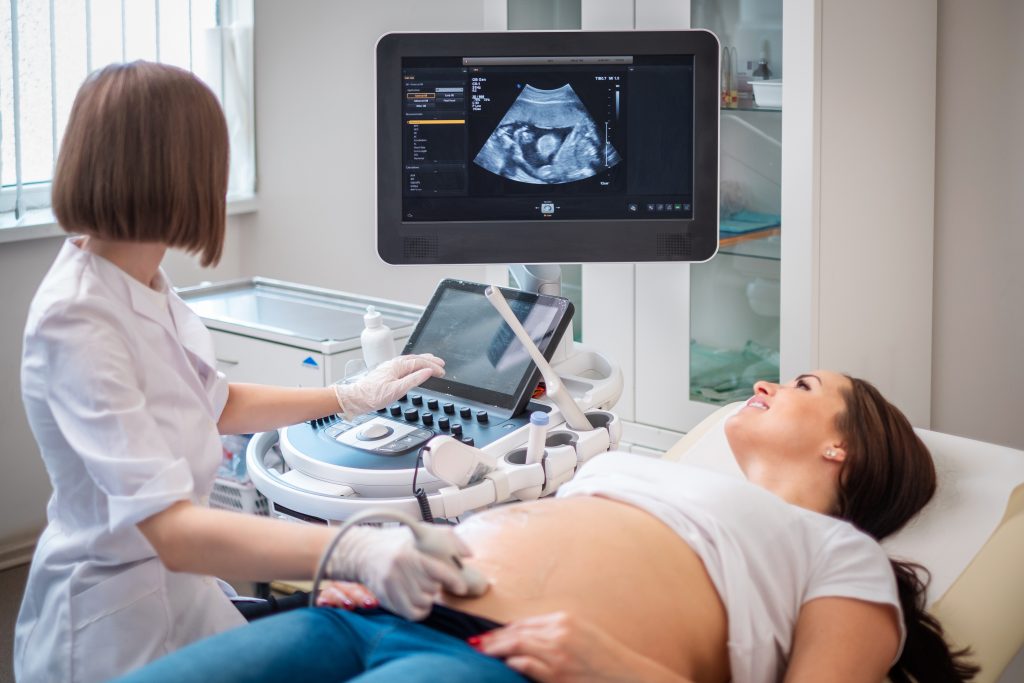
Pregnant woman undergoes utltrasound examination at a hospital. (source: Adobe Stock)
Ultrasound AI’s Product Helps Doctors Understand, Address Preterm Birth
After four years of cutting-edge research and development, a revolutionary new AI software shows the promise to change the lives of countless families around the world.
Founded in 2019, Ultrasound AI™ is a cloud-based AI company whose innovations rely on the power of AI combined with ultrasound imaging. Improving the lives of women is 100% of the focus of Ultrasound AI, whose first expected product, Preterm AI™, has the power to predict preterm birth.
This is very promising news for a surprising number of women around the globe that experience preterm birth issues. Preterm birth is when a baby is born before 37 weeks of pregnancy. In 2020, preterm birth affected one in 10 infants born in the United States.
In 2020, about 3.6 million babies were born in the U.S.: 1 in 10 would mean 360,000 preterms in that year alone.
Ultrasound AI, which says it’s dedicated to improving women’s health, announced its first patent on International Women’s Day.
The software powering its groundbreaking predictive diagnostic medical technology, Preterm AI™ (PAI), combines the power of ultrasound with AI to predict preterm birth.
The article from finance.yahoo.com heralded this combination of AI and preterm births.
“This technology has the potential to revolutionize obstetric care as well as accelerate research to develop new interventions to prevent both premature births and miscarriages,” said Dr. Garrett K. Lam, FACOG, Chief Medical Officer at Ultrasound AI.
Robert Bunn is the president and founder of UltrasoundAI and he has a very personal interest in developing this technology
Bunn is the pioneering expertise behind this discovery. After he and his wife experienced nine miscarriages and the happy arrival of four daughters over time, he knew he wanted to “make a huge dent in every serious affliction that only impacts women.” He used AI to analyze the data from 400,000+ de-identified ultrasound images.
The AI learned patterns from those images and was eventually able to recognize patterns in images and associate them with birth outcomes.
To learn more, visit www.preterm.ai or connect with the team on Facebook, Twitter, or LinkedIn. Preterm AI is not currently FDA-approved.
There is more information in the article and it will leave you feeling a little more positive about how AI is making a huge contribution to the future of all our healthcare
read more at finance.yahoo.com







Leave A Comment